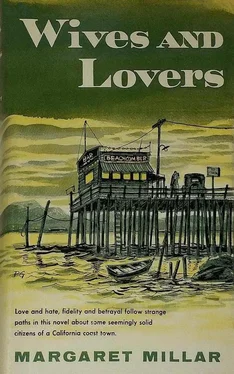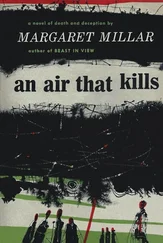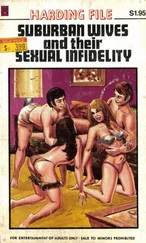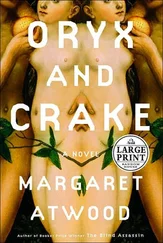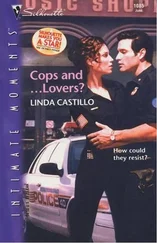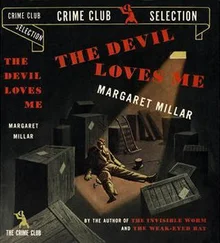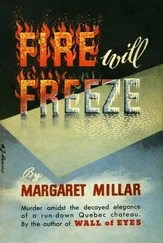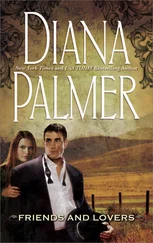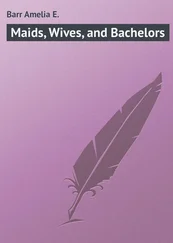Ruth opened her eyes. She saw Hazel’s toothbrush and her own, blurred and magnified by tears, and the blotches of tooth powder on the mirror, and the smudge of fingers around the catch of the medicine chest. I really must wipe things off, I must wipe—
“Ruth, are you all right?”
“Yes.”
“I thought—”
“I’m all right.”
And she was. She was not crying. From some inner reservoir filled to capacity the overflow dribbled out. She did not weep passionately and convulsively as Josephine had been doing lately. Ruth’s tears were without cause, without meaning.
I am not crying. It’s my eyes, they get so dry sometimes. They feel so small and shriveled, they need moisture. This is desert country, Harold, and don’t you forget it. The sun pours down, day after day. My eyes get dry and dusty.
“I bought a couple of pounds of ground round,” Hazel said. “We can have meat loaf. Then if there’s any left over we can make some sandwiches tonight in case Mr. Cooke drops in.”
“All right.”
Meat loaf. The oven would be on. The hot dry air would seep out of its cracks and the hot dry air would pour in the windows from outside. Her eyeballs would feel crisp and hard, like little dried peas.
“I’ll be out in a minute,” Ruth said. “I’m bathing my eyes, they felt gritty.”
Everything in the house was gritty, though she dusted every day. There was a school playground across the street, and the faintest breeze swept up the dust and wafted it into the neighboring houses. The children didn’t seem to mind the dust. Ruth watched them often from the windows of the living room. Some of the younger ones flung themselves boisterously into the dirt as if it were clean white snow. They sat in it, they threw it at each other, they scooped it up in their hands, they ate it mixed with ice cream, bubble gum, lollipops and peanut butter sandwiches.
It was August now and the children were not in classes, but they arrived at the playground early in the morning to play. The school, built to resist earthquakes, was a one-story L-shaped structure with all the classrooms opening on to an outside corridor. This corridor was asphalt, ideal for roller skating, and the long summer days echoed with the steady whirr of roller skates punctuated by sharp rhythmic clacking as the wheels slid over the cracks in the pavement. The playground was to Ruth, at first, an interminable chaos of noise which tore at her ears in a merciless, meaningless way. But she had gradually learned to distinguish the sounds and finally to identify them and speculate about them. The teeter-totter squeaked and banged, and Ruth could tell, from listening to the rhythm of the bang-squeak-bang, whether the children on the teeter-totter were the same size or not. If the rhythm was uneven Ruth wondered whether she should go over to the playground and tell the heavier child to sit further toward the center of the teeter-totter, but she never went.
The teeter banged, the swings creaked, the basketballs plopped, wide of the net, the flying rings gave off a brassy clang, and the children communicated naturally with each other by shouts and screams. A hundred times a day the derisive chant of I’m-the-king-of-the-castle filled the air. The tune was always the same, no matter how the words varied: Can’t catch a flea... Billy’s got a girlfriend... Brown Brown went to town, with his britches upside down... Red red wet the bed wipe it up with gingerbread... Lewis is a stinker... Helen is a tattletale... Rita is a garlic face...
Every time the chant rose, Ruth’s heart cringed and she thought, cruel, children are cruel, I must not let it bother me. I must ignore everything.
Miss Kane is a Cross Teacher — written in chalk on the sidewalk.
Miss Kan madam My son Manuel on his raport says poor reeder Home Manuel reeds good or else—
Dear teacher please excuse Annie from being absent as she had to go to the circus. And oblige, Mrs. Mendel.
Dear Miss Kane: I must say I was extremely surprised when Lillian Mae told me she was not chosen for the Christmas Pageant. Lillian Mae has been taking private dancing lessons for a whole year and her teacher says she is as graceful as a bird. I certainly am mystified as to why Lillian Mae was not chosen for the Pageant. Your truly, Katherine C. Robinson, (Mrs. John H. Robinson, Jr.)
Miss Kane Chews Nails.
Dear Miss Kane: Would you drop into my office tomorrow at four, as there are several matters, pertaining to your grade, which must be discussed.
I think you need a rest, Miss Kane.
Miss Kane splashed water into her eyes and the grit from the playground and the dust raised by the cruel children plunged down the drain.
She emerged from the bathroom, red-eyed and composed.
Hazel was sitting on the edge of her bed. She had her shoes off and she was rubbing her instep where the pump had cut into the skin. The dog, Wendy, had picked up one of the discarded pumps and retired under the bed to chew at the heel. With perseverance and lack of human interference, she could, within an hour, demolish the heel entirely, grinding the lift off with her molars and then peeling the leather away bit by bit with her tiny sharp front teeth.
“She’s got your shoe,” Ruth said.
“Take it away from her, will you?”
Ruth got down on her knees and pulled up the bedspread. “You bad dog. Bring it here.”
“You were so crying,” Hazel said.
“Don’t be silly. Bring it here, Wendy.”
“You never admit anything. Maybe if you did, well, people might be able to help you.”
Ruth raised her brows exaggeratedly, repudiating the idea that she was in a position where people could help her. The dog squeezed out from under the bed, wagging her tail to indicate that the whole thing had been an accident. She pressed against Ruth’s apron, burrowing her nose in the pocket.
Ruth laughed. “There, she didn’t mean it. Look, Hazel, she’s apologizing, did you ever see the like? There, there, her mother knows she didn’t mean it.”
“The hell she didn’t,” Hazel said.
“Anyway, I don’t believe in burdening other people with my troubles, even if I had any.”
She rose to her feet, and the dog quietly and with great caution returned to the shoe under the bed.
“I am tired,” Ruth said, “and hot. That’s all. My goodness, when I see those children over there playing so hard all day and getting so dirty... It’s a wonder their mothers don’t look after them.” She went to the front window of the bedroom. Four o’clock, the peak of the day, when the children were dirtiest and noisiest. Their shouts were shriller and their movements had a frenzied quality, as if they knew their hours of play were numbered and they must crowd everything they could into every minute that was left.
“Some people should never have children.”
“Tell it to God,” Hazel said, rubbing her foot, “not to me.”
“I had one little girl in my class... It was almost funny how dirty she was, and without realizing it. I often had to wash her ears, they were so dirty you’d wonder how she could hear out of them. She had beautiful hair, that red-gold color, and naturally wavy. I bought her a little comb to keep in her desk, and whenever she washed her own ears and face I gave her a penny.”
My goodness, how nice you look this morning, Margaret. Here’s your penny.
Thank you, Miss Kane.
Margaret never used the comb or the pennies. She hoarded them in a corner of her desk. On Valentine’s Day Miss Kane received a paper penny valentine, “To a Cross Patch Teacher,” bearing the picture of an old witch in spectacles riding a yard ruler. When Miss Kane took the valentine out of the valentine box, the other children watched in silence while Margaret sat at her desk, snickering behind her hand.
Читать дальше
